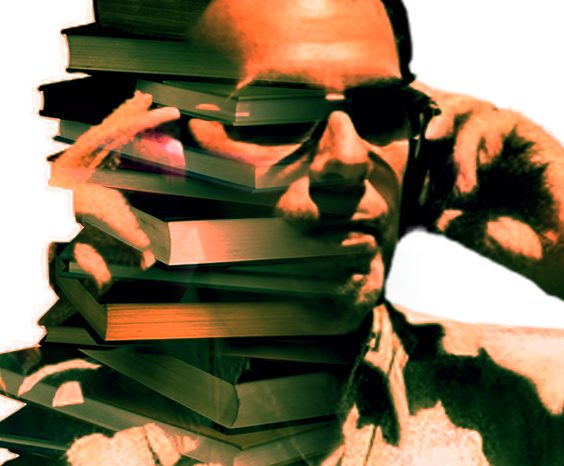Talking about Race and Anti-Black Racism from the Diaspora

Festival de La Novilla, San Sebastián.
Although I had only commented a simple, “what the actual fuck” on the photo earlier on in the thread, I had been following the comments. I decided to join the fray, when the commenter responded to Mario that slavery in Puerto Rico was different (read: less severe) than the United States, which allowed for racial mixing —mestizaje— which makes racism less of an issue for Puerto Ricans. These are perhaps the most common and insidious myths that promote white supremacy and colorblind racism in the archipiélago as well as the diaspora. Because the quality of my written Spanish “is not very good looking,” I responded in English to the thread noting, that there is no such thing as a gentler or more benevolent version of slavery, and that this is just something that Latin Americans and Caribbean folks tell themselves to project racism onto the United States while ignoring it at home. It could have been my decision to respond in English, my decision to situate Puerto Rico within a larger geographical and structural context, or simply my insistence that racism was and remains a structuring element of everyday life in Puerto Rican communities, but my remarks seemed to set off the commenter.
The commenter responded, by asking me what the hell I was talking about, telling me that I know nothing about Puerto Rico, and accusing me of trying to foist U.S. racial analytics onto Puerto Rico. After Mario and I challenged the commenter’s insistence that racism was not a serious issue in Puerto Rico, he challenged us to actually come to Puerto Rico so that we could stop being so ignorant and stop seeing reality through our American(ized) eyes. “No es lo mismo estudiar de un país que vivir en él. Yo vivo en Puerto Rico,” the commenter told us followed by a winking emoji. Every rejoinder that Mario or I offered was met by the same response: you are American/Americanized and obsessed with race, you don’t live here, talk to actual Puerto Ricans, please kindly shut the fuck up.
As someone who has been researching and writing about race and anti-Black racism in Puerto Rico from the perspective of the diaspora, I was used to this response and figured it was only a matter of time before the commenter went there to discredit what I was saying. What surprised me, however, was that Mario was also subjected to a similar dismissal of his attempts to point to the racial hierarchies that have always structured, and continue to structure, Puerto Rican society. Although born and raised in Puerto Rico, Mario through proximity to me in this particular exchange, through his recent migration to the U.S. for school, and though his insistence on highlighting racism had become “Americanized.” In a message shortly after, Mario joked that he had his Boricua Visa revoked.
Writing for El Nuevo Día, the Afro-Puerto Rican feminist scholar Bárbara Idalissee Abadía Rexach, dedicated her Buscapié column on January 24, 2019 to discussing the practice of blackface in Puerto Rico’s cultural traditions. In her column, she suggested that it is worthwhile to rethink the way that Blackness is represented in folkloric displays. She asked readers to consider how cultural traditions might highlight the history Black people’s struggles against oppression rather than making a spectacle and mockery out of Blackness. Despite the fact that Abadía Rexach is based in Puerto Rico, deeply involved in a number of local struggles for social justice, and writing in one of the archipelago’s daily newspapers, many of the comments from detractors on her column insisted that she was “americanizando demasiado.” Whether it was her choice to use the English term “blackface” or simply her insistence that racial inequality is a reality in contemporary Puerto Rico and that cultural traditions can reflect that, Abadía Rexach was accused of having an American-style obsession with race and racism.
I bring up these examples because they show how attempts to discuss race and racism in Puerto Rico are often dismissed as attempts to import U.S. racial problems and apply U.S. racial analytics to the Puerto Rican context. This has long been the case and a number of scholars in Puerto Rico and the diaspora have worked to show how this critique is used to silence discussions of race and reinforce anti-Black and white supremacist structures in Puerto Rican society. As historian Ileana Rodríguez-Silva notes in her book Silencing Race, there is no more effective strategy to shut down conversations about historical and contemporary expressions of racialized marginalization than to “deem race, racialization, and racism as foreign matters, specifically as U.S. phenomena” or to question the speaker’s “commitment and love to the Puerto Rican nation.” The work of scholars like Zaire Dinzey-Flores, Carlos Alamo-Pastrana, Isar P. Godreau, Hilda Lloréns, Arlene Torres, Miriam Jimenez, Yeidy M. Rivero, and Petra R. Rivera-Rideau, just to name a few, demonstrate how discourses of racial mixing have functioned to distance Puerto Rico from the U.S. racial regime and silence discussions of anti-Black racism within Puerto Rican society more generally. Not to mention the crucial work of Afro-Puerto Rican artists and activists to unmask the racial hierarchies and oppressions, which have been widely normalized within Puerto Rican communities (such as the sight of children and adults in blackface at cultural events).
These recent exchanges in response to blackface at La Novilla, leave me wondering about the role of the diaspora in discussing and addressing racial inequality in Puerto Rico, particularly at a time when colonial and capitalist crises force more and more Puerto Ricans to migrate to the United States. If being or having been a diasporic subject seemingly throws one’s ability to speak about issues in the archipelago into question, then as the current crisis deepens more and more Puerto Ricans will find themselves with their “Boricua Visas” revoked. Of course, this is a reality that those of us born and raised in diaspora have always recognized and felt. While the boundary between Puerto Rico and the diaspora has always been a porous one, this current crisis makes it even more so. In this moment, then, we have an opportunity to strengthen the connections between Puerto Rican scholars, activists, and artists dedicated to uncovering and eradicating racial injustice in the archipiélago to those in the diaspora.
The Dominican scholar Silvio Torres-Saillant in his essay “Racism in the Americas and the Latino Scholar,” argues that it is the responsibility of those living in the diaspora to contribute to the theorization of their ancestral homelands particularly around questions of anti-Black and anti-Indigenous racism. Torres-Saillant suggests that rather than attempting to impose an Americanized understanding of race on Latin American and Caribbean contexts, diasporic subjects living in the United States and experiencing the effects of systemic racism and daily microaggressions are attuned to identifying racial structures and can help to pierce the myths of racial democracy and mestizaje that facilitate pernicious forms of colorblind racism. According to Torres-Saillant, “As U.S.-based scholars with a connection to the societies that perpetrate the atrocities in question, we have compelling reasons to care. White supremacy has been the conceptual glue that holds together the cultural logic of spoliation, discrimination, compulsory invisibility, and genocide in the region.” Torres-Saillant encourages those of us in the diaspora to create scholarship based in solidarity and a shared struggle against the violence of white supremacist and capitalist systems of value.
I revisit Torre-Saillant’s essay often and it has greatly impacted my own scholarly approaches and commitments as someone located in the U.S. academy at the intersections of Latinx and Puerto Rican Studies. What I take from Torres-Saillant’s essay is not a notion that diasporic or Latinx scholars are more entitled or equipped to discuss issues of racism and inequality. Rather, those of us in the diaspora have a responsibility is to inform ourselves, thoughtfully contribute to scholarly debates and discussions, and, especially for those of us at elite U.S. educational institutions, use the considerable resources at our disposal to amplify the important work already taking place in Puerto Rico, particularly that being done by Afro-Puerto Ricans. As scholars working in the archipelago and the U.S. we indeed do need each other and have much to learn from one another. My hope is that those of us in the archipelago and in the diaspora can work towards an anti-racist praxis rooted in radical openness and solidarity in order to confront the crises before us.













